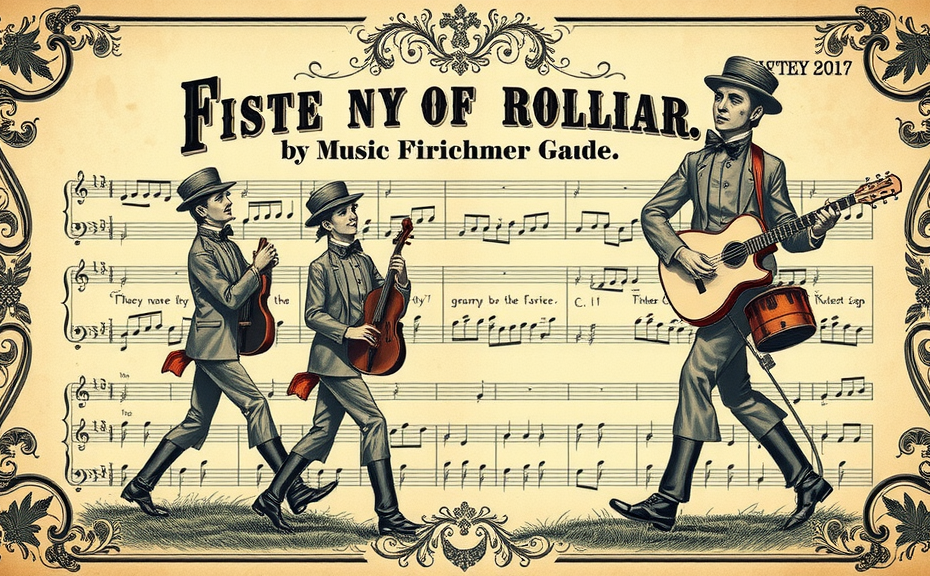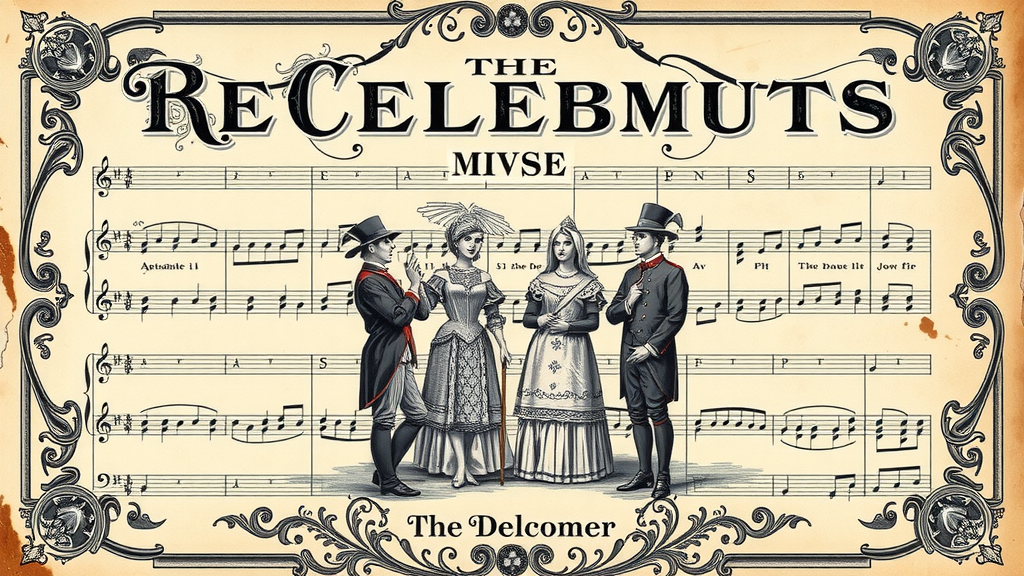The relationship between copyright and theatrical works often prompts inquiries among enthusiasts and performers alike. The operettas created by Gilbert and Sullivan stand as celebrated masterpieces of Victorian musical theatre, with numerous pieces entering the public domain.
Copyright law typically enforces a specific duration during which creative works are protected before they can be utilized freely.
Notably, many productions by Gilbert and Sullivan, like The Mikado, are now classified as public domain, providing enhanced opportunities for adaptation and reinterpretation.
This status invites modern performers to engage with these classic works, allowing for artistic innovation across the theatrical landscape
Are Gilbert And Sullivan Works Public Domain
The complexities surrounding the copyright status of works by the renowned duo reflect the evolving landscape of intellectual property laws. The operettas crafted in the late 19th century, including renowned titles like The Mikado and H. M. S.
Pinafore, have transitioned into a different legal realm.
In the United States, these works entered the public domain following the expiration of copyright protection after.
Some productions released post-1923 might still be governed by copyright restrictions across various jurisdictions. These nuances hold significant importance for individuals interested in producing or adapting the creations of this talented librettist and composer.
The partnership between Gilbert and Sullivan resulted in a total of fourteen operettas that enjoyed tremendous acclaim during their era. This transition into public domain status has opened avenues for enhanced access to their work, fostering creativity in contemporary performances, particularly in the reinterpretations of Gilbert and Sullivan’s operas by new librettists and composers eager to explore intellectual property in innovative ways.
Understanding Copyright And Its Implications
The protection of original creations operates within a distinct legal context, establishing guidelines for ownership and use. Copyright is a foundational aspect of intellectual property law, serving to safeguard various creative formats, including literature, music, and theatrical performance.
Unlike patents or trademarks, which focus on inventions or brands, this legal framework emphasizes the rights of creators regarding their artistic expressions.
The duration of this protection can vary significantly based on the type of work.
For example, theatrical performances in the United States typically enjoy coverage extending for the life of the author plus a period of 70 years.
It may surprise many to learn that, under certain conditions, copyright can be renewed, leading to opportunities for creators to maintain rights over their works longer than initially intended.
Copyright influences the realm of theatrical performance significantly, shaping aspects of both distribution and presentation. An intriguing element of this theatrical performance is its clever use of satire and parody to deliver humor while remaining royalty-free.
Copyright in Theatrical Performance
- Copyright protects original works, including literature, music, and theatrical performances.
- The duration of copyright protection for theatrical performances in the U. S. is the life of the author plus 70 years.
- Copyright can be renewed under certain conditions, allowing creators to extend their rights.
- Satire and parody can be used in theatrical performances without incurring royalties, due to copyright exceptions.
The Historical Significance Of Gilbert And Sullivan
The partnership between two distinctive talents reshaped the landscape of musical entertainment during the late 19th century. Their collaboration began in the 1870s, leading to the creation of influential works like The Mikado, which captivated audiences with its clever blend of humor and sharp social commentary.
This innovative formula not only made operetta more popular but also made serious themes more accessible to a wider audience.
The productions sparked vital discussions surrounding societal issues, effectively expanding the limitations of theatrical representation.
Their pioneering approach significantly influenced the evolution of musical theatre and inspired future composers, including prominent figures like Rodgers and Hammerstein.
The satirical elements present in their productions set a benchmark for modern adaptations, reflecting their enduring legacy within the theatre community.
With their works now available through creative commons, various adaptations, performances, and productions are thriving under flexible usage rights.
How Do Adaptations Influence Theatrical Performance
The transformative process of adaptations can reshape theatrical experiences, influencing both the narrative and cultural perceptions of performance art. Such revisions to historical works often breathe new life into the stories, allowing fresh interpretations to emerge.
For example, when classic literature is adapted, the character dynamics frequently evolve to highlight relevant societal issues, thereby enriching the narrative.
These adaptations not only enhance storytelling but also serve to reflect contemporary values, drawing connections to the audience’s lived experiences.
Interestingly, musicals inspired by English operetta often utilize new song lyrics to connect past traditions with present sensibilities. These innovative shifts can significantly impact audience engagement, transforming emotional responses and making adaptations a pivotal element in the evolution of performance art.
As we transition from examining the historical significance of Gilbert and Sullivan, it becomes essential to explore their artistic legacy and how their works continue to influence modern interpretations.
Exploring The Artistic Legacy Of Gilbert And Sullivan
The collaborative works of two Victorian-era figures transformed the landscape of theatrical arts, establishing a benchmark in musical entertainment. Their operettas fused humor with astute social observations, providing audiences a mirror to contemporary issues.
These performances, alongside various stage adaptations, often reflect enduring themes relevant to society, exemplifying their timeless appeal.
Through a distinctive blend of catchy melodies and sharp lyrics, they paved the way for future innovations in theater.
Their cultural heritage extends beyond the stage, influencing numerous adaptations and inspiring countless performers worldwide. The legacy of their creations underlines the influence of satirical commentary within the realm of entertainment, a hallmark that continues to resonate today.
Can You Use Their Music Royaltyfree
Musical compositions hold a significant place in cultural history, reflecting societal values and artistic movements throughout time. Copyright laws protect these creations for a duration of 70 years after the author’s death, ensuring that the rights of composers are upheld.
Notably, the operatic works of Gilbert and Sullivan, crafted in the late 19th century, have transitioned into the public domain across various jurisdictions.
This shift offers remarkable artistic freedom to utilize their libretti without incurring royalty fees.
Users should be aware of specific restrictions that may still apply, particularly concerning unique performances or adaptations that could modify the original content. Clarifying usage rights is crucial for individuals interested in incorporating these playful and satirical theatrical works into their projects.
The Role Of Satire In Their Operettas
The incorporation of humor as a means of critique can be observed throughout the history of operettas. Often, these performances serve to blend comedic elements with sharp commentary on societal norms, creating a unique form of storytelling.
Historical antecedents reveal that ancient theatrical traditions utilized humor to challenge authority, setting the stage for modern adaptations.
In operettas, exaggerated scenarios highlight absurdities within various societal structures, facilitating a deeper understanding of complex issues.
For instance, certain operettas may cleverly parody legal status discrepancies, effectively illustrating themes of social injustice while providing entertainment. This method of storytelling allows composers to engage audiences through irony and wit, fostering a connection to serious themes in a more approachable manner.
Such an innovative approach enhances both resonance and relevance, ensuring their lasting impact.
Creative Commons And Community Theatre Productions
The use of adaptable licensing frameworks can significantly enhance the creative landscape for theatrical productions within communities. Creative Commons licenses enable groups to engage audiences more deeply by allowing them to adapt and distribute existing works without the constraints of traditional copyright.
This flexibility fosters a rich narrative environment, permitting theatre groups to produce character-driven plays that strongly resonate with local audiences.
Access to Creative Commons materials not only supports the revival of existing works but also inspires unique contributions from an ensemble cast of local talent.
Participating in the revival of lesser-known plays diversifies programming and enriches cultural dialogue within communities.
Many playwrights actively select Creative Commons licensing to facilitate collaboration among their artistic peers. This approach promotes experimentation, allowing theatre productions to reflect the diverse narratives and unique stories of their locality. The application of these licenses nurtures innovation while preserving local cultural heritage in an accessible manner, ultimately contributing to a character-driven narrative that fosters audience engagement and a revival of community stories.
Adaptable Licensing Frameworks in Theatre
- Creative Commons licenses allow for adaptation and distribution of works, enhancing audience engagement.
- The use of adaptable licensing encourages local talent to contribute and collaborate on productions.
- Reviving lesser-known plays through these licenses diversifies programming and enriches cultural conversations.
- Flexible licensing frameworks help preserve local cultural heritage while promoting innovative storytelling.

